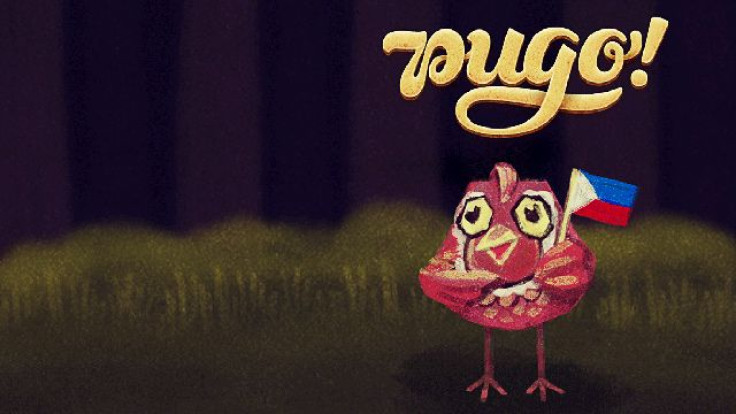'Flappy Bird' No Longer Available For Android, IPhone: Knockoff 'Pugo' Currently Number One In IOS Store
This cute pink bird will annoy you just as much as "Flappy Bird."

Move over, “Flying Cyrus.” “Flappy Bird” knockoff “Pugo” is the most popular app in the iOS AppStore. The free app launched Feb. 25 and currently holds a 3.5-star rating.
“Pugo” operates under the same mechanics as “Flappy Bird,” but instead of the infamous yellow bird dodging green pipes, you’re controlling a pink quail in a forest. The game was created by Patrick Cabral and his wife, Camy.
Recent reports show one-third of newly released iOS games are “Flappy Bird” clones. During a 24-hour period beginning on Feb. 26, 293 games launched in the App Store and 95 of those games were obvious clones of the frustrating app that was pulled from smartphone app stores Feb. 9.
The games’ developers are undoubtedly hoping to cash in on the meteoric success of “Flappy Bird,” which was reportedly pulling in $50,000 per day. Vietnamese Dong Nguyen pulled the game at the height of its popularity, calling it an “addictive product.”
Instead of birds, some of the clone games feature pigs, cats, sponges, bricks, worms and unicorns.
On Feb. 21, “Flappy Bird” knockoff “Flying Cyrus” reached No. 1 in the iTunes App Store. The game operated with the same mechanics and basic principles, except Nguyen’s “Flappy Bird” was replaced with a version of tongue-wagging pop sensation Miley Cyrus. Instead of dodging green pipes, Cyrus dodged wrecking balls. User reviews claimed the title was just as frustrating.
The original “Flappy Bird” was published by Vietnam-based Gears Studio last May. At one point, the title was currently being downloaded 2-3 million times per day in Google Play and Apple iOS stores. "Flappy Bird" received an iPhone update in May 2013 and an iOS6 update in September of last year. It topped the free category of downloadable games in the American and Chinese iTunes App Store at the end of January 2014.
On Feb. 9, Nguyen removed the game, claiming it was due to the amount of criticism and negative press it was receiving. “I am sorry, 'Flappy Bird' users, 22 hours from now, I will take 'Flappy Bird' down. I cannot take this anymore,” Nguyen tweeted in early February. He also denied that he was asked to remove the app by Nintendo, a speculation made by many gaming sites. “It is not anything related to legal issues. I just cannot keep it anymore,” he posted on Feb. 8.
On Feb. 11, Forbes spoke to Nguyen about why he yanked the game from the hands of millions of addicted users. “'Flappy Bird' was designed to play in a few minutes when you are relaxed,” the creator said. “But it happened to become an addictive product. I think it has become a problem. To solve that problem, it’s best to take down ‘Flappy Bird.’ It’s gone forever.”
Sorry, guys, looks like you'll have to be content with "Flappy Bird" imitators for now.
© Copyright IBTimes 2024. All rights reserved.












